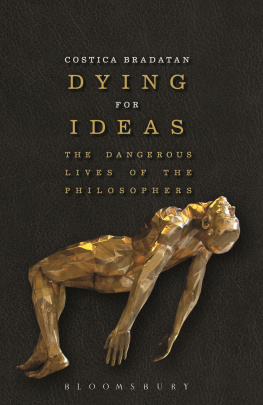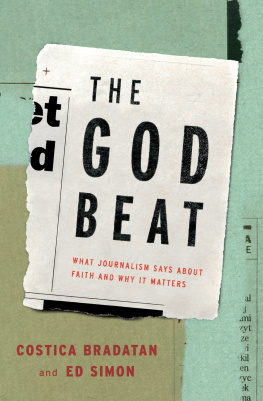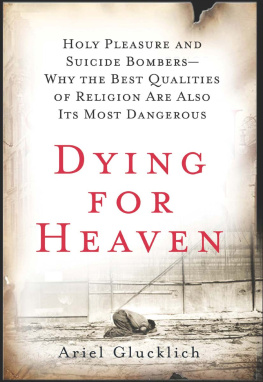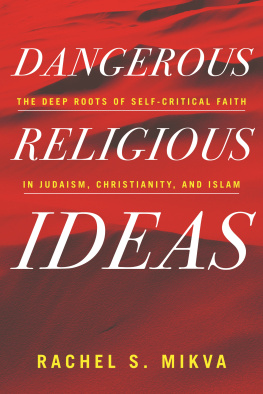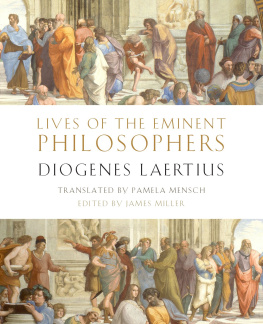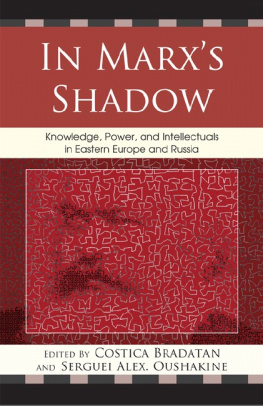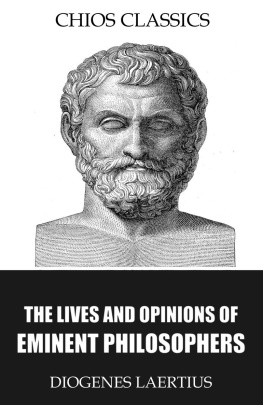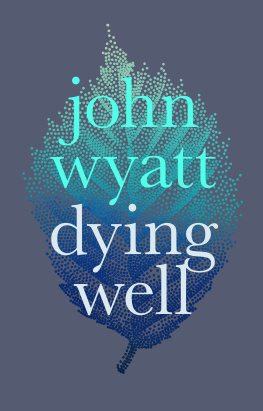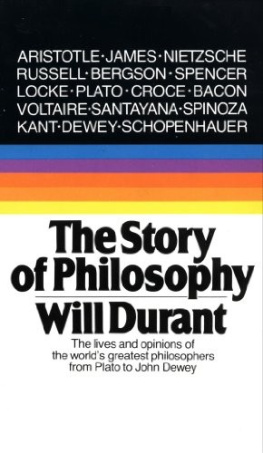Costica Bradatan - Dying for Ideas: The Dangerous Lives of the Philosophers
Here you can read online Costica Bradatan - Dying for Ideas: The Dangerous Lives of the Philosophers full text of the book (entire story) in english for free. Download pdf and epub, get meaning, cover and reviews about this ebook. year: 2015, publisher: Bloomsbury UK, genre: Religion. Description of the work, (preface) as well as reviews are available. Best literature library LitArk.com created for fans of good reading and offers a wide selection of genres:
Romance novel
Science fiction
Adventure
Detective
Science
History
Home and family
Prose
Art
Politics
Computer
Non-fiction
Religion
Business
Children
Humor
Choose a favorite category and find really read worthwhile books. Enjoy immersion in the world of imagination, feel the emotions of the characters or learn something new for yourself, make an fascinating discovery.
- Book:Dying for Ideas: The Dangerous Lives of the Philosophers
- Author:
- Publisher:Bloomsbury UK
- Genre:
- Year:2015
- Rating:3 / 5
- Favourites:Add to favourites
- Your mark:
- 60
- 1
- 2
- 3
- 4
- 5
Dying for Ideas: The Dangerous Lives of the Philosophers: summary, description and annotation
We offer to read an annotation, description, summary or preface (depends on what the author of the book "Dying for Ideas: The Dangerous Lives of the Philosophers" wrote himself). If you haven't found the necessary information about the book — write in the comments, we will try to find it.
Dying for Ideas: The Dangerous Lives of the Philosophers — read online for free the complete book (whole text) full work
Below is the text of the book, divided by pages. System saving the place of the last page read, allows you to conveniently read the book "Dying for Ideas: The Dangerous Lives of the Philosophers" online for free, without having to search again every time where you left off. Put a bookmark, and you can go to the page where you finished reading at any time.
Font size:
Interval:
Bookmark:

DYING FOR
IDEAS
ALSO AVAILABLE FROM BLOOMSBURY
How to be an Existentialist , Gary Cox
How to be a Philosopher , Gary Cox
How to Win Every Argument , Madsen Pirie
Statues , Michel Serres (translated by Randolph Burks)
The God Confusion , Gary Cox
Cristinei i Anastasiei
DYING FOR
IDEAS
The Dangerous Lives of
the Philosophers
COSTICA BRADATAN
Bloomsbury Academic
An imprint of Bloomsbury Publishing Plc

Continuamente moriamo, io mentre scrivo queste cose; tu mentre leggerai, ambedue moriamo, tutti moriamo, sempre moriamo.
(FRANCESCO PETRARCA)
CONTENTS
Books may need solitude for their conception and gestation, but they are never solitary in nature. Indeed, in an important sense, they are just another way of being with others. The more so writing them: to write books is to learn from others, to converse with them, to receive support, and to incur debts. The book you are just about to read is no exception.
I am much indebted indeed. To Liza Thompson, my editor at Bloomsbury, for her faith in this project and the unwavering support throughout the process. To the copy editors, for their patient and thorough work. To John Caruana, Andrei Codrescu, David E. Cooper, Matthew Lamb and Robert Sinnerbrink, for having read the entire manuscript and provided me with invaluable feedback; these are generous friends who have played a decisive role in bringing the book into a better shape, for which I cannot thank them enough. To Aurelian Craiutu, dear friend of many years, with whom I discussed in detail the evolution of this project; Relu has been the ear-witness to this books coming into being. To Stephen R. L. Clark, Simon Critchley, Graham Harman, Giuseppe Mazzotta, James Miller, Jonathan Monroe, Robert Nixon, Ingrid Rowland, and Michael Walzer, for endorsing this project at an early, yet crucial stage. To Ruth Abbey, Diane Awerbuck, Mihail Bota, Michelle Boulous-Walker, Rachel Brenner, Peter Cheyne, Sookja Cho, Preeti Chopra, Howard Curzer, Steven DeLue, Claudia Gotea, Sabrina Ferri, Daniel Gilfillan, David Goldstein, Alexander Gungov, Greg Hainge, Laura Harrison, Peter Harrison, Gabriela Horvath-Dragnea, Vittorio Hsle, Ion Ianoi, Michael Marder, Marilia Librandi-Rocha, Gordon Marino, Nick Nesbitt, David Reggio, Rob Nixon, Mark Roche, Claudia Sadowski-Smith, Susan Stanford-Friedman, Dorin Tudoran, Christopher Williams, Wanwei Wu, Catherine Zuckert, and Michael P. Zuckert for their solicitude, encouragement and advice. To many others, too many to name here, who have played a part in shaping the concept and execution of this project, sometimes without realizing it.
While working on this book Ive been fortunate enough to hold a number of residential fellowships in the USA and abroad. I am very grateful to these institutions and honored to have been their fellow: The Newberry Library (Chicago); The William Andrews Clark Memorial Library and the Center for Seventeenth- and Eighteenth-Century Studies (University of California at Los Angeles); The Institute for Research in the Humanities (University of Wisconsin at Madison); The Woodrow Wilson International Center for Scholars (Washington, DC); The Notre Dame Institute for Advanced Study (Notre Dame University); The Institute for Humanities Research (Arizona State University); The Bogliasco Foundation (New York); The Liguria Study Center for Arts and Humanities (Italy); and Gladstones Library (UK). To complete this book, I also received substantial research grants from Texas Tech University (the Office of the Provost, the Office of the Vice-President for Research and the Honors College), as well as from the Earhart Foundation. Without these institutions support, the book would have been much more difficult to write.
Over the last few years, parts of the book have been presented, as conference papers or invited lectures, at universities in North America, South America, Europe, Asia, and Australia. The response from colleagues or members of the public in all these places was very important. I also incorporated fragments from it into a series of lectures I gave over several summers at The European College of Liberal Arts (ECLA) in Berlin. In 2010 I taught in India a summer graduate course called Matters of Life and Death. The program was organized by The Forum on Contemporary Theory Baroda and hosted by the University of Punes Department of English. Much of what I presented in Pune became part of the final draft. I am very grateful to Dr. Prafulla Kar, the Centers Director, for inviting me to teach this course, and to the students who took itthe best students any teacher could ever dream to have. In February 2014 the manuscript of Dying for Ideas was discussed at a symposium organized by the Department of Humanities and Social Sciences at the Indian Institute of Technology Bombay. I am grateful to all those who attended. I am especially indebted to Dr. Ranjan Kumar Panda for organizing it and commenting on the book. Dr. Deepa Mishra and Dr. Pravesh Jung Golay gave me excellent feedback, for which I cannot be grateful enough.
As I was working on this book project I published a handful of essays on various aspects of its main topic. Larger or smaller chunks of these texts have been reworked, recast (sometimes to an unrecognizable degree), and incorporated into what has become the final draft of the book: Philosophy as an Art of Dying (published in The European Legacy ); A Light for the Future. On the Political Uses of a Dying Body ( Dissent ); The Political Psychology of Self-immolation ( The New Statesman ); Philosophy as an Art of Living ( Los Angeles Review of Books ); and From Draft to Infinite Writing. Death, Solitude and Self-Creation in Early Modernity ( Culture, Theory and Critique ). Big thanks are due to these publications as well.
Death is the most precious thing which has been given to man. That is why the supreme impiety is to make bad use of it. To die amiss.
SIMONE WEIL
A matter of life and death
Socrates never wrote a line, yet his death was a masterpiece and has kept his name alive. While he was living, Jan Palachthe Czech student who set himself on fire in January 1969 in protest about the Soviet occupation of his countrydid not amount to much. After his fiery death, however, he became for many nothing short of a demigod, a creature of tremendous vitality and influence. From beyond the grave Palach shaped Czechoslovakias history. Whenever Gandhi would embark on yet another of his fasts unto death everything in India would become unusually lively, more vivacious than ever. During these fasts every change in his physical condition was broadcast to every corner of the country (Fisher 1983: 318). The whole of India lived Gandhis hunger.
Death, it seems, does not always mean the negation of lifesometimes it has the paradoxical capacity of enhancing it, of intensifying it to the point of, yes, breathing new life into life. The presence of death can instill in the living a new appreciation of existenceindeed, a deeper understanding of it. It would be fair to say, then, that life needs death . Should death be somehow outlawed, life would receive a devastating blow.
First of all, life needs death for reasons of self-realization. It often happens that we realize how precious something is only when we lose it, or are about to; it is the prospect of its sudden absence that teaches us how to appreciate the value and significance of its presence. So death can bring a new intensity to the act of living by its sheer proximity. Historians have noticed the curious fact that often, when natural or social disasters with a high-mortality ratesuch as plagues or warsstrike, people seem more inclined to abandon themselves to worldly excesses. They pursue carnal pleasures (drinking, eating, or sex) greedily, with a newly discovered passion. Rather than acting cautiously to preserve resources, as common sense would require in situations of crisis, they are quick to spend whatever is left to them. For they are in the greatest of rushes, these people: they hurry to gorge on the pleasures of life at the very moment that death approaches. What increases their lust for life is precisely the presence of death. The attitude may seem irrational, yet there is something marvelous about it. On the verge of annihilation, these people discover the miracle of existence, and are celebrating.
Font size:
Interval:
Bookmark:
Similar books «Dying for Ideas: The Dangerous Lives of the Philosophers»
Look at similar books to Dying for Ideas: The Dangerous Lives of the Philosophers. We have selected literature similar in name and meaning in the hope of providing readers with more options to find new, interesting, not yet read works.
Discussion, reviews of the book Dying for Ideas: The Dangerous Lives of the Philosophers and just readers' own opinions. Leave your comments, write what you think about the work, its meaning or the main characters. Specify what exactly you liked and what you didn't like, and why you think so.

